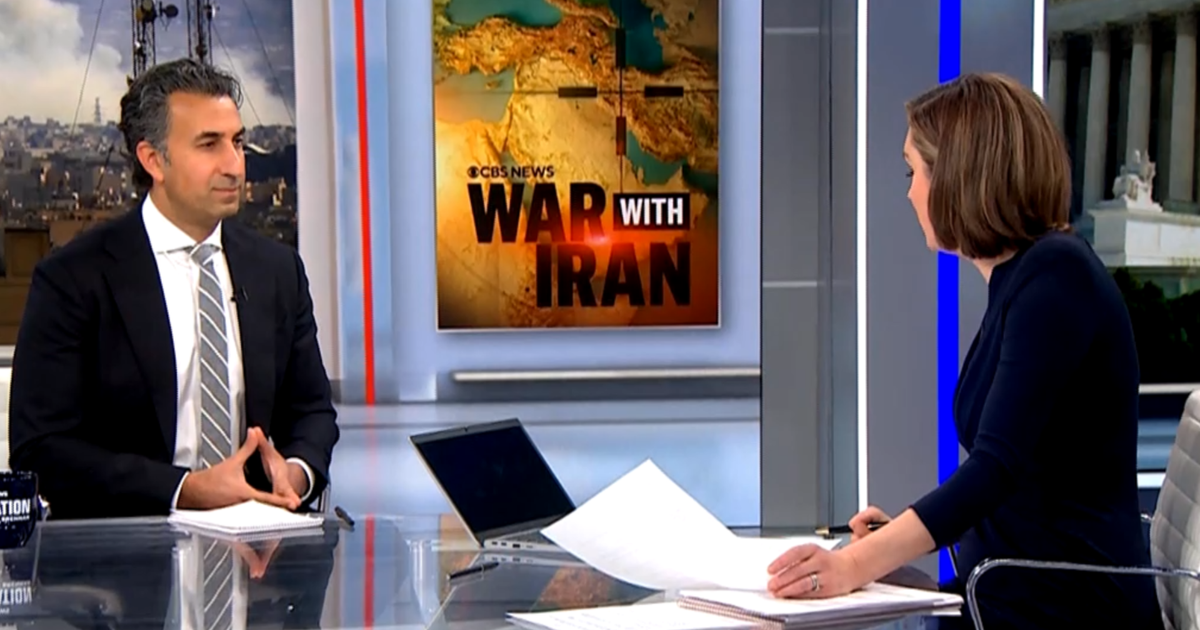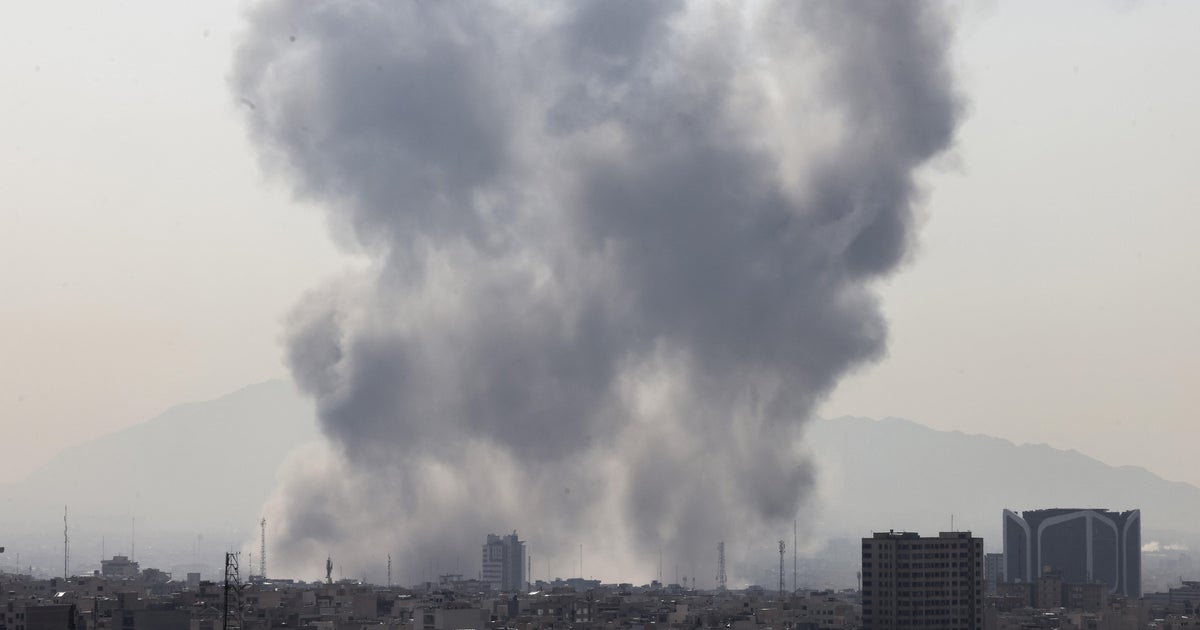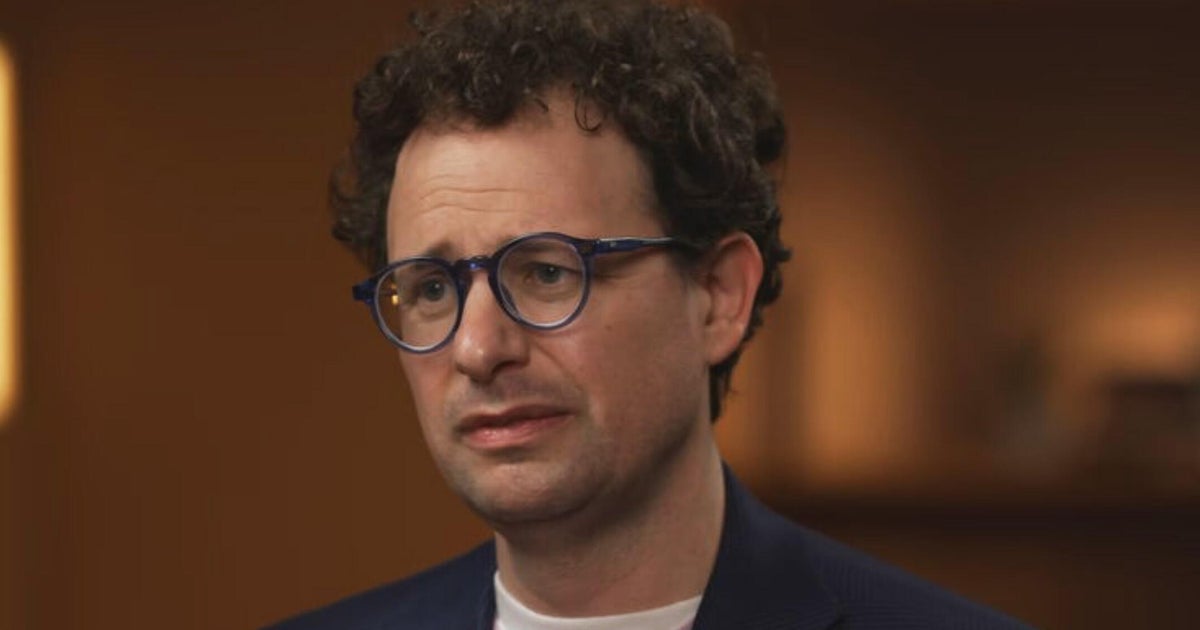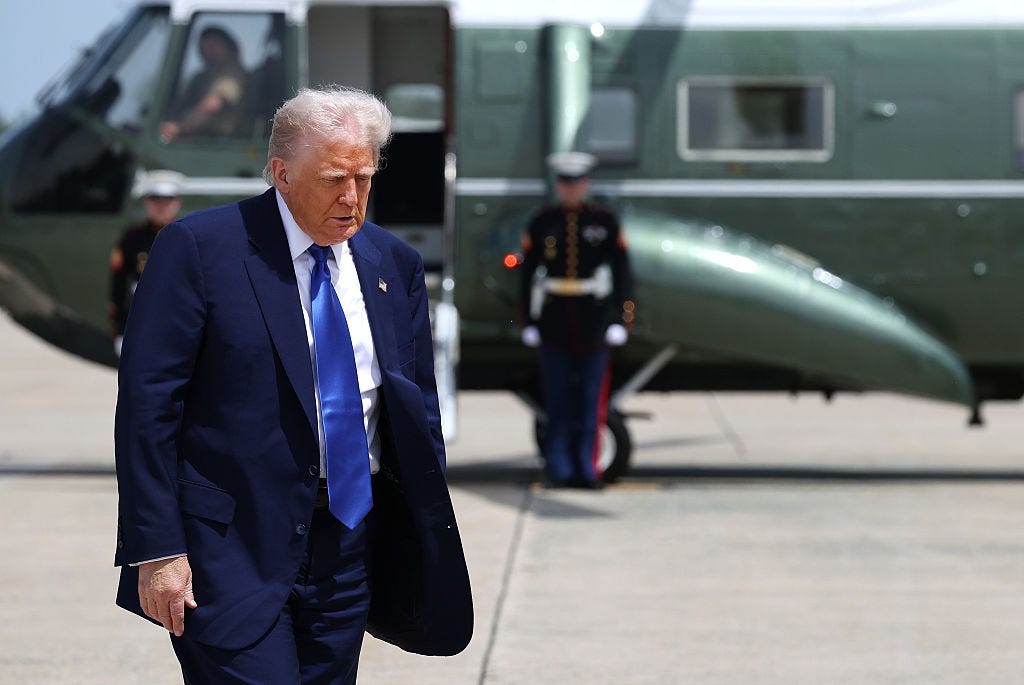Transcript: Secretary of State Mike Pompeo on "Face the Nation," May 5, 2019
The following is a transcript of the interview with Secretary of State Mike Pompeo that aired Sunday, May 5, 2019, on "Face the Nation."
MARGARET BRENNAN: Good morning and welcome to FACE THE NATION. It's quiet here in Washington, but that is not the case in other parts of the world.
Overnight, we've seen the worst flare up in violence between Israel and Hamas in months. Hamas fired hundreds of rockets into Israel which responded with what Prime Minister Netanyahu called "massive airstrikes in Gaza." Meanwhile, North Korea tested what appear to be short range missiles as President Trump's diplomatic outreach stalls. Kim Jong Un personally oversaw that launch. And in Venezuela, a U.S. backed uprising against Nicolas Maduro fizzled as opposition leader Juan Guido was unable to peel away his key military support.
We begin this morning with America's top diplomat, Secretary of State Mike Pompeo. Welcome to "Face the Nation" on a very busy morning for you. On this latest North Korea test, it appears to be short range missiles. Does Kim Jong Un get a pass on this or are we looking at a situation where more sanctions are necessary?
SECRETARY OF STATE MIKE POMPEO: So the sanctions haven't changed. The toughest sanctions in the history of North Korea remain in place. That's probably what's putting some of the pressure on Chairman Kim today. You saw this happen too right after his visit to Russia. Right- right after he spoke with Vladimir Putin, he made the decision to take these actions. We're still evaluating the appropriate response. But I want everyone in your audience to know we're going to exhaust every diplomatic opportunity there is. I continue to invite our counterparts for negotiations. We still believe there is a path forward where Chairman Kim can denuclearize without resort to anything beyond diplomacy. We're hopeful that we can achieve that. We've made real progress between Singapore and Hanoi and we hope that progress can continue. It would be the best outcome for the world and Chairman Kim's commitment that he made to President Trump back in Singapore remains in effect. He has said he's prepared to denuclearize. My task as America's most senior diplomat is to achieve that.
MARGARET BRENNAN: So when President Trump tweeted "I'm with him," he wasn't saying that this test will go without consequence.
SEC. POMPEO: I think President Trump understands that the path forward that is the most optimal for the entire world is a negotiated solution to this. So we're- he- I talked to him last night. We are full speed ahead and trying to work with the North Koreans to diplomatically achieve the verified denuclearization on the peninsula.
MARGARET BRENNAN: Cynthia Warmbier, the mother of Otto Warmbier, the college student from the University of Virginia who died in North- after being released from North Korean custody, spoke out forcefully about Kim Jong Un and the diplomacy under way. Take a listen.
*Take SOT*
MARGARET BRENNAN: How do you respond to her?
SEC. POMPEO: Well, I've gotten to know the Warmbier family, especially Cindy. She's an amazing patriot and a remarkable woman and I have enormous sympathy for her and admiration for her as well, and I completely understand her remarks. We're hopeful. We don't expect Chairman Kim to tell us the truth. That's why we're going to verify any denuclearization that takes place. That's why we will ensure that we see actual on-the-ground- on-the-ground outcomes. We're not going to take anyone's word for it but we want to work to try and do that in a way that is a negotiated solution and that's our mission set.
MARGARET BRENNAN: Are you still President Trump's lead negotiator on North Korea?
SEC. POMPEO: So far as I know.
MARGARET BRENNAN: Well, the North Koreans have said they objected to negotiating with you personally.
SEC. POMPEO: The North Koreans don't get to choose our negotiator and we don't get to choose theirs. Each of these two leaders is also very personally committed to this effort. They've both shown great effort to try and achieve this outcome. I'm working to support those two leaders so that we can get the outcome that the world deserves.
MARGARET BRENNAN: I want to ask you about China. Chinese officials are headed here to Washington for trade talks. We heard from a Pentagon official on Friday, a pretty stark description of what is underway right now in China. He- he said that there are 3 million Muslims being rounded up into concentration camps in China. Why hasn't the administration taken any kind of action or sanction against Beijing for this?
SEC. POMPEO: Oh goodness. The- President Trump has pushed back against China in a way that no previous president had--
MARGARET BRENNAN: Concentration camps--
SEC. POMPEO: --they'd- they'd given- they- they had given the Chinese a free pass in every dimension. President Trump is now pushing back on the enormous trade abuses. You've seen me personally speak out about the same situation that you're describing, this- this number certainly up to a million people held in reeducation camps. The Trump administration is going to hold every nation accountable--
MARGARET BRENNAN: You're okay with that term, reeducation camps, not concentration camps, which the Pentagon used?
SEC. POMPEO: We can- we can use lots of different terms to describe what's taking place. This is an enormous human rights violations. I've spoken about it repeatedly--
MARGARET BRENNAN: Why the difference between--
SEC. POMPEO: --the entire administration has spoken on it repeatedly.
MARGARET BRENNAN: You just said a million minorities.
SEC. POMPEO: Yeah.
MARGARET BRENNAN: The Pentagon says 3 million.
SEC. POMPEO: Yeah.
MARGARET BRENNAN: Is there a discrepancy within the administration--
SEC. POMPEO: No--
MARGARET BRENNAN: --on what to do about this and what's actually happening?
SEC. POMPEO: There- there- there- there's not. Don't- don't don't play ticky tac. There's no discrepancy. This administration this- this--
MARGARET BRENNAN: Concentration camps is a loaded term, sir.
SEC. POMPEO: Ma'am--
MARGARET BRENNAN: And three million Muslims being rounded up is something that many would expect the United States to raise--
SEC. POMPEO: Yes.
MARGARET BRENNAN: --at the highest levels.
SEC. POMPEO: And- and we've done so.
MARGARET BRENNAN: So- sanctions--
SEC. POMPEO: So it sounds like you're satisfied with that.
MARGARET BRENNAN: Well--
SEC. POMPEO: Right, we- we've done so, right? And so- don't- don't- don't- don't- don't make--
MARGARET BRENNAN: But why use sanctions? Should we expect that? Be- because the accusation as you know, sir, is that the trade talks are causing the US to choose its own financial interests over its values. Are you saying that's not the case and there will be actions taken?
SEC. POMPEO: Thanks for the clarification of your question, I- I appreciate that. This administration can do more than one thing at a time. We're working to stop the intellectual property theft that has destroyed millions of jobs in the United States. We're working to stop the foreign technology transfer- foreign technology transfers that have taken place. We've got the largest defense budget in history in place, part of which will go to ensuring we counter Chinese military power. We're working on these human rights violations as well. This administration takes a backseat to no one in our efforts and our outcomes in achieving a more rational relationship with China. The previous administration put us in a bad place and we're working to fix it.
MARGARET BRENNAN: Were you just saying human rights are going to be included in the trade deal?
SEC. POMPEO: No human- human rights are- are going to be addressed.
MARGARET BRENNAN: On--
SEC. POMPEO: And we've done so. I've raised it in multiple conversations with my counterpart their foreign minister and with others.
MARGARET BRENNAN: You've got the whole world as your portfolio so let's move on to Venezuela and Russia. There was this phone call between Vladimir Putin and President Trump that just happened. The president described it to us in an Oval Office spray. Why didn't he bring up election interference on this phone call when he said he did discuss the findings of the Mueller Report which found sweeping and systematic Russian interference in 2016?
SEC. POMPEO: Well you'll have to ask the White House that question. The president's been very clear. The administration has taken great action. I wish the previous one had stopped the election interference that took place in 2016. They failed to do so. Between 2017 when President Trump came into office and 2018, we had a successful election year, a set of midterm elections. We're working diligently to ensure that the elections in 2020 aren't interfered with by Russia, by Iran, by North Korea or anyone else. We have enormous resource deployed against that challenge. And the American people should be sure that their government is working hard to keep our election safe and secure.
MARGARET BRENNAN: You said, this week, that Moscow has hundreds of people in Venezuela and you were very clear that you think it was Russia that convinced Nicolas Maduro not to get on a plane and to flee the country. Here's what the president said during his- after his phone call with Vladimir Putin.
*Take SOT*
MARGARET BRENNAN: There seems to be a difference in how the president described the situation and how you and Ambassador Bolton have described it.
SEC. POMPEO: No, no difference, no difference. The- the president has said, I think he in fact tweeted, that the Russians must leave Venezuela. We've asked every nation that is in- interfering with Venezuelan democracy- you've seen this. I- I was down on the border. We saw mothers who couldn't feed their children, fleeing the country. We saw families that had sick kids but couldn't get medicines, all sitting, was sitting within 50 miles of where we were located. And Maduro won't allow it to come in. The president's been very clear, we want the Cubans out. There are Iranians on the ground there. We want the Russians- we want everyone out so that the Venezuelan people can get the democracy they deserve. That includes Mr. Maduro leaving.
MARGARET BRENNAN: So when he says, the president says, "Putin is not looking to get involved at all in Venezuela," that is not the president accepting him at face value?
SEC. POMPEO: You'll- you'll have to leave- you'll have to look at--
MARGARET BRENNAN: He knows that that's not the case?
SEC. POMPEO: The- the president has tweeted that he wants the Russians out of Venezuela.
MARGARET BRENNAN: So he was just putting a positive spin on things in that moment?
SEC. POMPEO: We- we are working very diligently to ensure that Maduro leaves and we get free and fair elections in Venezuela. That will require the 2,300 Cuban security personnel, the- frankly, the people closest to Maduro who are protecting the in- tight security for Maduro, they've got to leave. We're working on that as well. We're working with the Cubans to try and get an outcome that will let the Venezuelans have this opportunity.
MARGARET BRENNAN: On this, I know you'll be meeting with the Russian foreign minister in the coming days. Is there a deal to be struck with Russia on this front? I mean, Russia benefits, right, by having Venezuelan oil off the market, by having a level of influence in America's backyard. Is the U.S. going to negotiate a deal with Russia on Venezuela?
SEC. POMPEO: I'll certainly bring up Venezuela, be one of many topics that Foreign Minister Lav- Lavrov and I speak about- speak about. Whether there's a particular deal that can be reached? Only time will tell.
MARGARET BRENNAN: Lindsey Graham, the Republican senator from South Carolina who I know you know well tweeted this week, "Cuba, Russia sent troops to prop up Maduro in Venezuela while we talk and have sanctions. Where's our aircraft carrier?" He seems to be calling a bluff here on your mention and mention from others that military options aren't off the table. What is actually being considered here because you can't refer to the use of military force lightly. Is there an actual option that you are considering deploying in the coming days?
SEC. POMPEO: Oh goodness. The president's made clear that no option is off the table. We worked this week to further the planning so that we'd have a wide range of options. Diplomatic options, political options, options that would involve the Department of Defense. We- we've made clear the president- the- the president--
MARGARET BRENNAN: That's hospital ships that or that's actual offensive action?
SEC. POMPEO: There are- there'll be many options that we will fully bake, make sure they're ready, get laid out in exquisite detail that are executable so that when the situation changes on the ground or the president makes a conclusion that it's a path he wants to go down that these options are prepared for him. We wouldn't want to be flat footed and we've worked diligent to make sure that that capability, a wide range of capabilities, are prepared to be executed.
MARGARET BRENNAN: And just final point on this. Juan Guaido, the opposition leader that the US backs and many other countries recognize as a legitimate leader, has said that he essentially miscalculated the level of support in assuming the military would back him or break away from Maduro. Are you still saying a military option is on the table when the opposition leader we are backing can't get the support of his country's military?
SEC. POMPEO: Well he didn't get it that day. Although the senior intelligence official left, that's not the case that military haven't left. There have been a- lots of Venezuelan military that have departed--
MARGARET BRENNAN: Not enough--
SEC. POMPEO: --but- but let's make that--
MARGARET BRENNAN: --to make that successful?
SEC. POMPEO: Not yet. We're not there yet. We're- we won't be successful till the day that we are. And we're determined to see that the Venezuelan people have their democracy restored as are 54 other nations including most every nation in the region. They understand that the three million refugees, three million migrants that have departed Venezuela, another two million this year, is unacceptable for their region and they are working to build out a coalition to support the Venezuelan people and their democracy.
MARGARET BRENNAN: Alright, Mr. Secretary. I'm told we have to leave it there. Thank you for coming in.
SEC. POMPEO: Thank you, ma'am.



